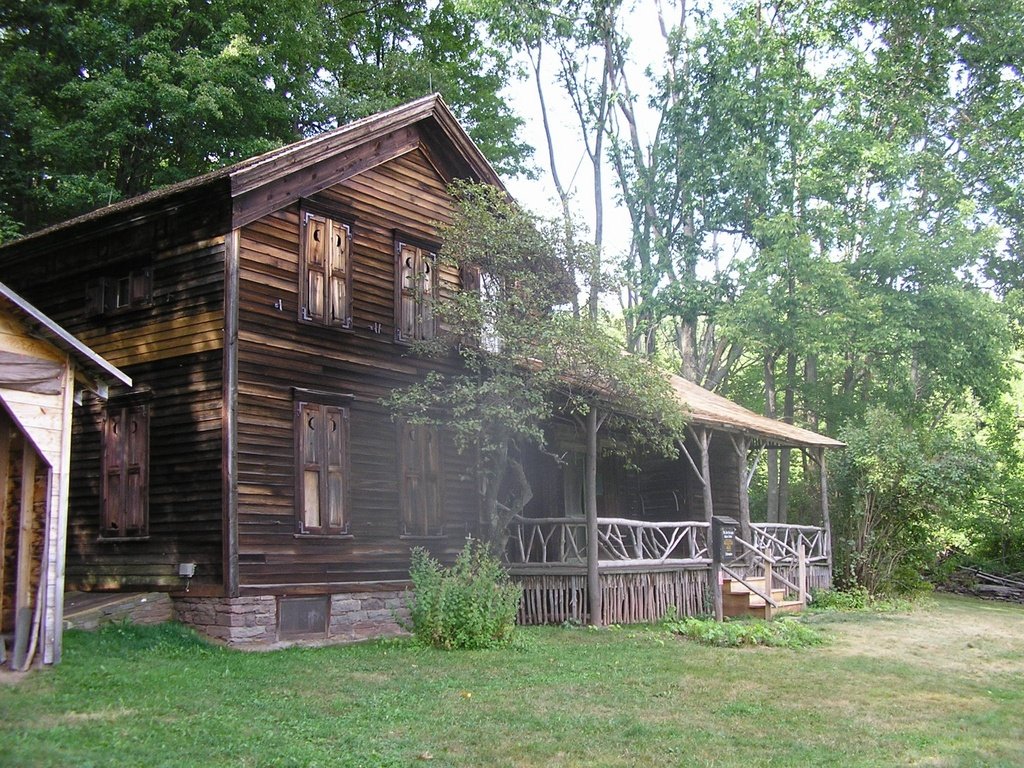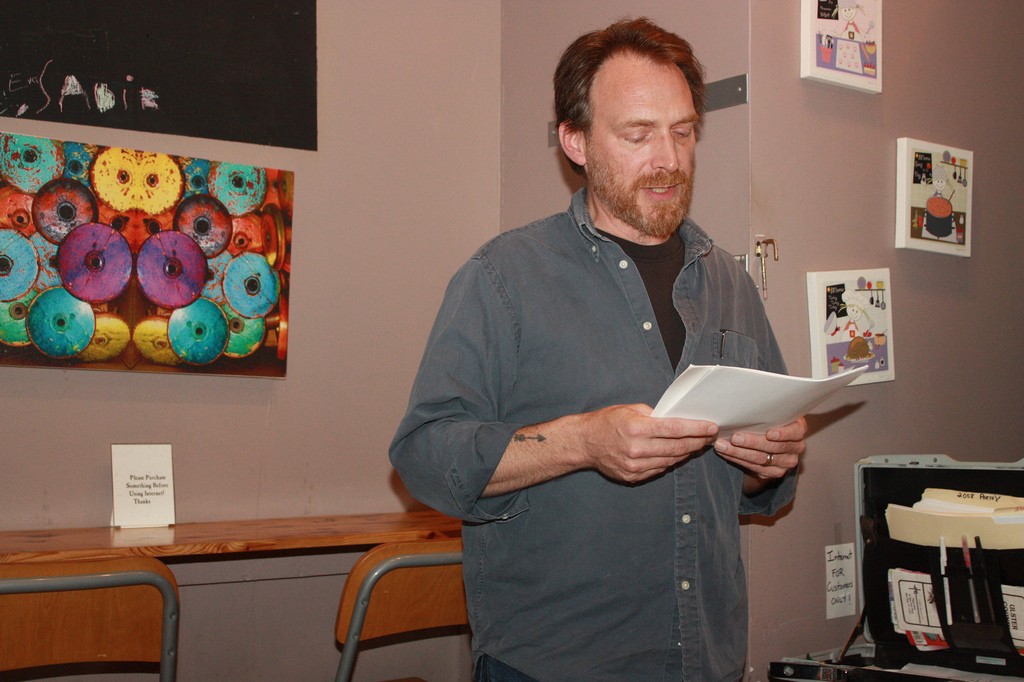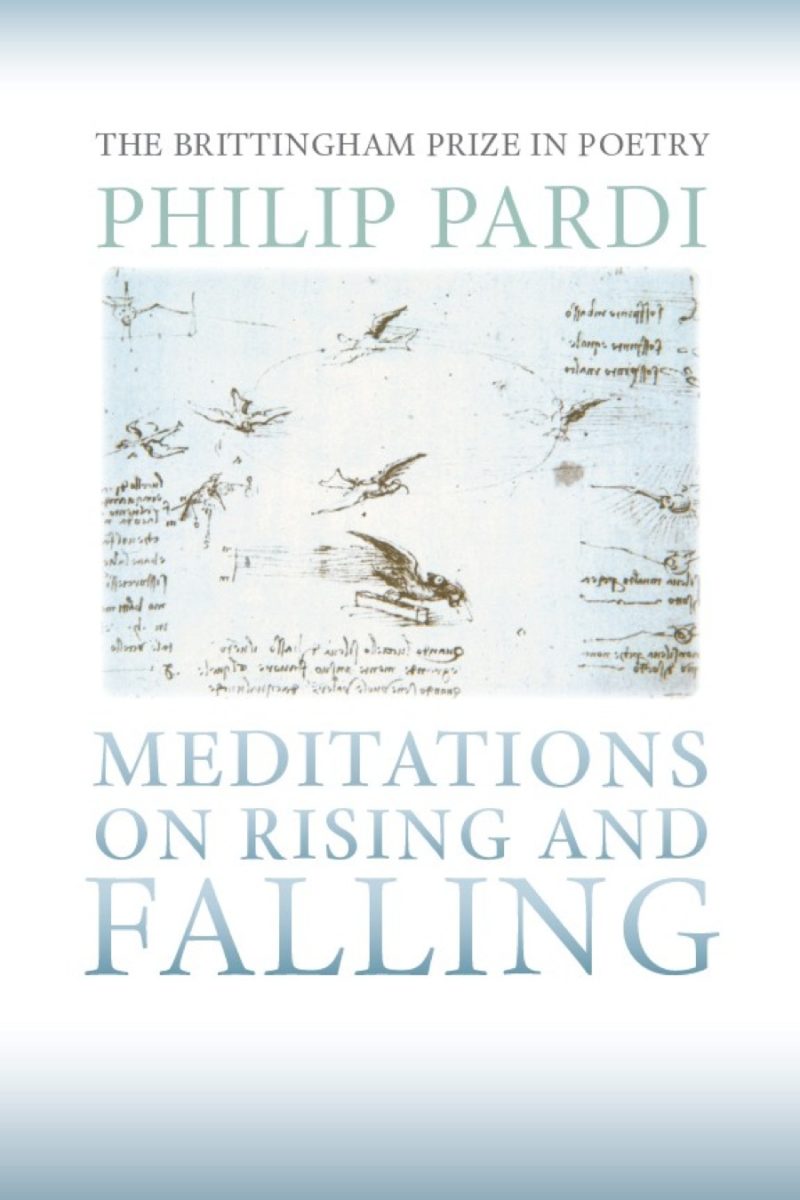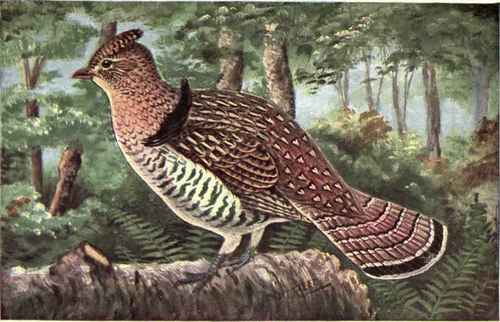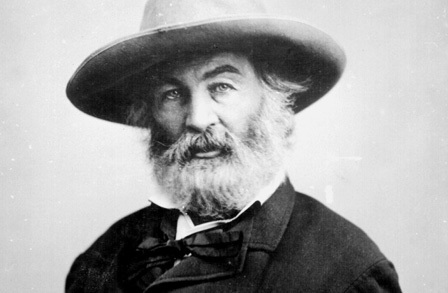(Originally published in the June 11, 1998 Woodstock Times.)
By 1912, John Burroughs, a celebrated and opinionated author on the sublime importance of nature for one’s personal character, had noticed the birth of the automobile. And he didn’t like it. “Burroughs had gone so far as to propose that the automobile was a demon on wheels with the ability to ‘seek out even the most secluded nook or corner of the forest and befoul it with noise and smoke,’” writes Edward J. Renehan, Jr. in the biography, John Burroughs: An American Naturalist (Black Dome Press, $19.95). But Henry Ford didn’t respond by calling Burroughs a Luddite, tree-hugger or environmental wacko. Instead, the savvy industrialist, who was also an avid birder, sent Burroughs a fan letter followed by a Model T.
At first, Burroughs struggled behind the wheel. After all, he was 75 years old in an automobile without power steering, power brakes or the other conveniences that now make driving easier than walking. He soon rammed a locust tree inside his front gate. Then, trying to park in the barn, he drove himself halfway through the wall, smashing through the timber boards like an explosion. But Burroughs had not risen from his humble origins as a Catskill farm boy to become a friend of Teddy Roosevelt and other great figures of his day by letting fear stop him. After several months on Ulster County’s roads, he had the demon firmly under control. “His granddaughters still recall many nerve-rattling drives with their grandfather, who came eventually to take great joy in high acceleration,” Renehan writes. The Catskills most famous naturalist was also one of our region’s first reckless drivers.
This biography is full of surprises about John Burroughs. Until now, I had pictured him as an avuncular naturalist with a Santa Claus beard, the sort of fellow who whistles bird calls and teaches children how to catch salamanders under rocks. In fact, he hated Christmas, telling his son it was “a fraud based on a folk-tale” for people who pretended to be Christians. He was something of a sycophant, a voracious philanderer and an occasional hypocrite, at least if you think writers should live by their own noble words. But he was also a hard worker, a devoted friend and a passionate enthusiast for literature and nature.
Upon visiting Burroughs at his home, Riverby, in West Park, overlooking the Hudson River, Oscar Wilde, of all people, pronounced him to be the real thing. “He looks like the farmer that he is, but talks like the cultured man-of-letters that he also is. Very oxymoronic, but very gracious too,” Wilde wrote in a letter quoted by Renehan. “I did, however, want to take him out and buy him some clothes.”
Born in 1837, Burroughs grew up on a hardscrabble farm in Roxbury with nine siblings, none of whom ever left Catskills farm life. As a boy, he hardly seemed special, either. He led the cows back and forth to their pastures, and cleared rocks from the fields for planting crops. For an escape, he hunted, fished for trout, collected wild honey and found other outdoor pursuits that he would later write about in idyllic terms. But he caught the book bug from one memorable teacher, and after graduating at 16, he became an itinerant school teacher in Olive, High Falls and other villages. At night, he read the classics and began writing.
“In the spare rooms and haylofts in which he found himself on his round of ‘guesting’ at his students’ homes, he spent the evening hours filling notebook after notebook,” Renehan writes. “There are no memoirs of boyish frivolity here, no jokes, no mention of ball games played or fishing excursions with friends, no descriptions of the pretty older sisters of his students who made a point to comb their hair so carefully before they carried the young schoolmaster an unasked-for glass of milk after dinner.” Instead, he wrote, “earnest paragraphs” about the “philosophical foundations” of a worthy life. Like many aspiring writers of the day, he soon fell under the sway of Ralph Waldo Emerson. His first published essay in the Atlantic was such a good imitation that it was mistaken for Emerson’s work for decades.
Burroughs wasn’t a feral naturalist, a farm boy who learned bird songs as easily as children now absorb advertising jingles. Rather, he caught the bird bug at the age of 26, partly from studying John James Audubon’s illustrated The Birds of America. He decided to become an “Audubon of prose.” He also quit his meager teaching career to become a clerk at the federal treasury. In 1863, Washington D.C. was ringed with forests, so Burroughs taught himself nature by roaming several miles from town into the deep words or birding at the White House gardens. Like Audubon, he shot and stuffed birds to study them. He also developed his own shorthand of dashes and dots for recording their songs in his notebook. Years later, one of his rambling companions said the author “casually revealed, in tossed-off and relaxed comments, an almost encyclopedic knowledge of birds, flowers, trees, rocks.”
After finishing his ledger for the day at the Treasury Department, Burroughs turned to his essays. “Slowly, year after year, in odd spare moments at that accounting desk, he accumulated the skill in writing that gradually gained him ready acceptance for his outdoor sketches,” Renehan writes. From the publication of his first essay collection, Wake-Robin, reviewers admired his easy mixture of close observations of nature with his own poetic responses. One compared reading him to taking a summer vacation. An editor later reassured him that his “pleasant papers…breed joy in the world as it is.” Burroughs would ultimately publish more than two dozen books that sold more than one-and-a-half million copies in his lifetime. Although largely forgotten today, he was a celebrated author early in the century sought out by school groups, other writers and famous figures like Ford and Roosevelt, who were themselves avid naturalists.
At one White House luncheon, Renehan writes, the President announced, “John, this morning I heard a chippy sparrow and he sang ‘twee, twee,’ right in my ear. Burroughs shook his head. ‘Mr. President,’ he said, ‘you must be mistaken. It was not a chippy sparrow if it sang, ‘twee, twee.’ The note of the chippy sparrow is ‘twee, twee, twee.’” Thus began a monumental argument that carried the two men right through lunch.
Burroughs was as serious about literature as about nature. Despite the biography’s subtitle, “An American Naturalist,” Renehan devotes more pages to Burroughs’s literary career. After an early infatuation with Emerson, Burroughs became a lifelong acolyte of Walt Whitman, whom he met in Washington D.C., where the poet volunteered in hospitals for wounded Civil War soldiers. Although built like a lumberjack, Whitman had a wise and sweet demeanor that infatuated Burroughs. “It is as if Nature herself had spoken. And so kind, sympathetic, charitable, humane, tolerant a man I did not suppose was possible,” he wrote of the man who would be his literary mentor and hero. Like Allen Ginsberg in our era, Whitman wrote with a casual exuberance that many major literary figures dismissed as uncrafted. But Burroughs considered Whitman “the poet of the new, of freedom and sane sensuality,” and wrote two books defending him.
Although Whitman was gay, Renehan doubts the two men ever became lovers. Whitman found romance among firemen, soldiers and mechanics, rather than his literary friends, Renehan writes, while Burroughs was a “voracious” heterosexual. He had married Ursula North at the age of 19, not long after he began noticing women; but the two grew apart to polar extremes. She saw his youthful enthusiasm for books and writing as an impractical waste of time, while he fled domesticity for rambles and writing.
In 1873, he became a federal bank examiner, which allowed him to return to this region. He settled in West Park, where he built Riverby, a cold stone house with few windows inspired by the smooth rocks of our region. “All things make friends with a stone house,” Burroughs wrote, “the mosses and lichens, and vines and birds.” But Renehan counters: “Built into the side of the hill, the rock walls seemed a natural extension of the earth: wholesome, organic. Inside, however, the place was incapable of providing comfortable shelter for a family.”
After a dozen years, Burroughs left his bank job to run his farm full-time, choosing the profitable business of growing grapes. He later built his Slabsides cabin two miles from Riverby to escape his wife. By now, however, the couple was raising a son, Julian, who Burroughs had fathered by one of the family’s many maids. Despite the frigid marriage, Burroughs was a devoted father. “After the reading of Robin Hood Burroughs crafted his son a real bow and arrow set with which to prowl the woods and imagine. The two attended West Point football games in the fall, skated on the frozen river in winter, boiled sap in the spring, and swam in the Hudson and Black Creek together in the summer.” Perhaps because of Julian, Burroughs remained married to Ursula for 59 years until her death, although he had met a younger mistress and literary devotee 16 years earlier.
Burroughs lived until 1921. In the final irony of his life, he spent his waning months not at home in his beloved Catskills, but in LaJolla, California, where his mistress had taken him to escape the cold winters. At first, he marveled at the “earthly paradise—all sun and sky and sea,” but he soon longed for his green hills. Of the arid peaks of the West, he wrote, “The naked earth, the colored boulders, lay blistering in the sun.” He added, “They tired me like a fever—a leprosy of stone.” His family buried him in a pasture at the old Roxbury farm, where, as an old man, he had returned in search of childhood memories.
“The old man’s nostalgia was for a green world of ever-productive farms, pure waters, and good, simple people upon which an all-powerful God looked down,” Renehan writes. “His craving was insatiable, his melancholy profound.” At the funeral, his family deeply resented “the newsreel vultures” who joined them in the pasture for shots of the famous author’s relatives. But Burroughs’s century of agrarian values was over. Ours had begun.

